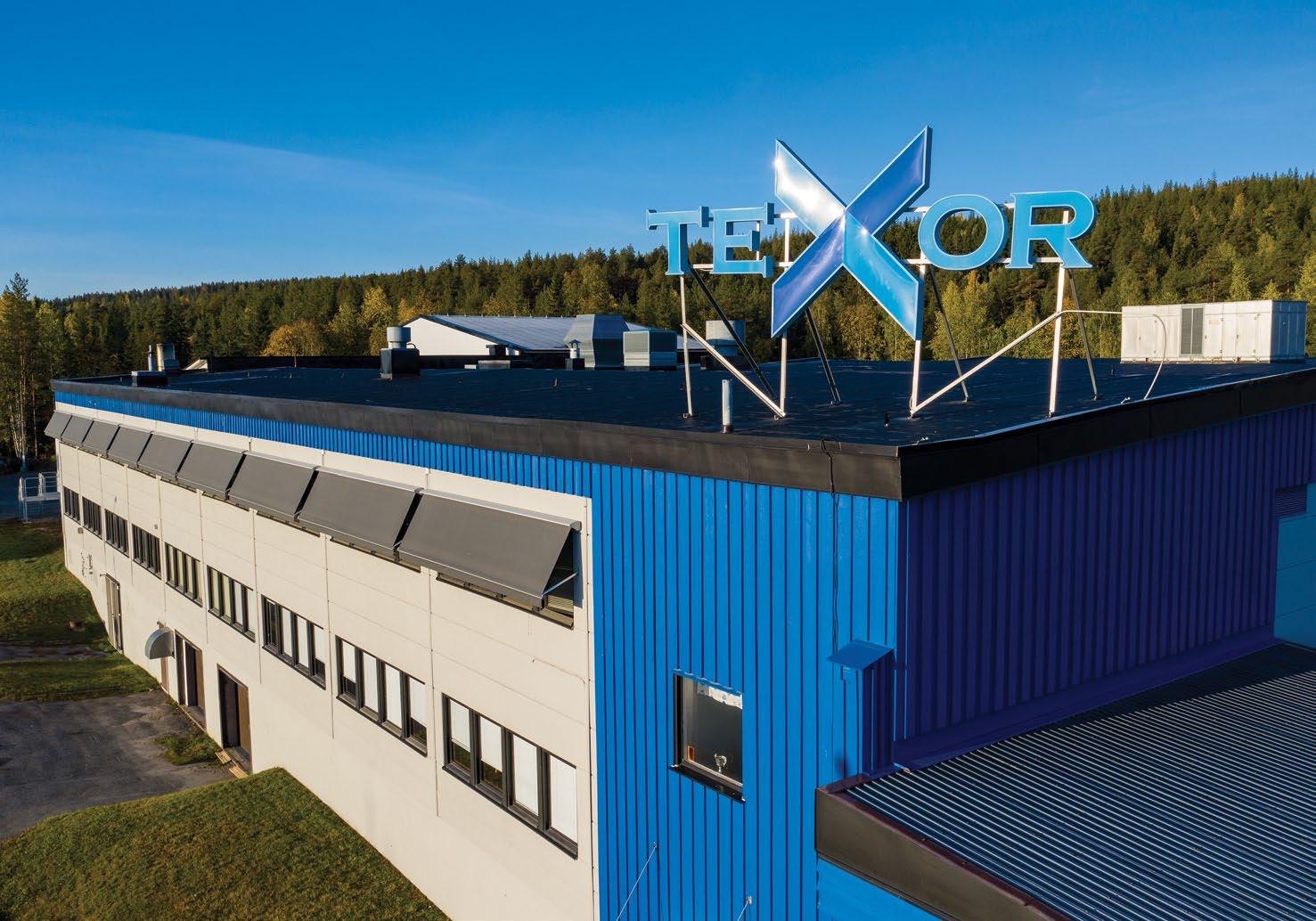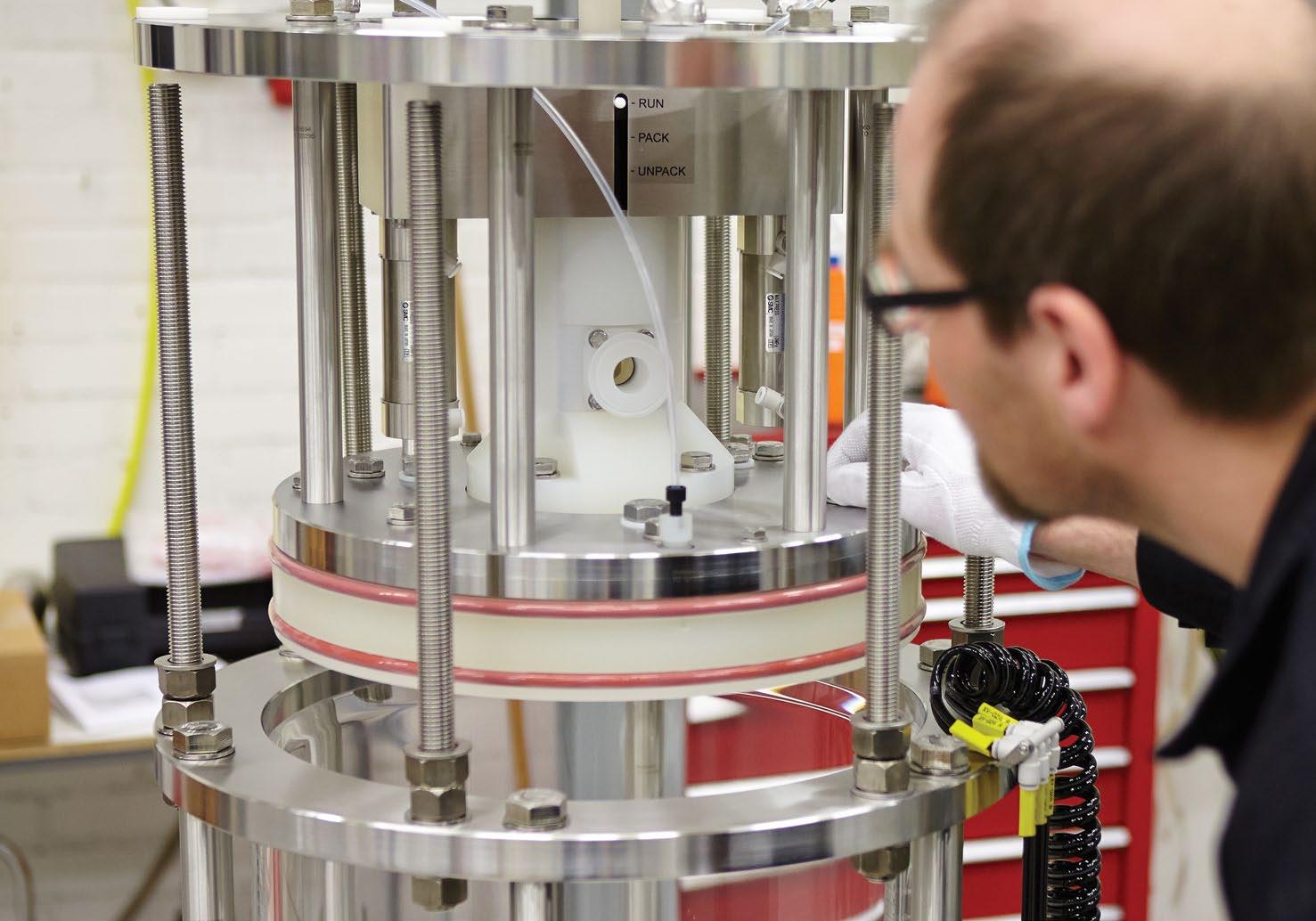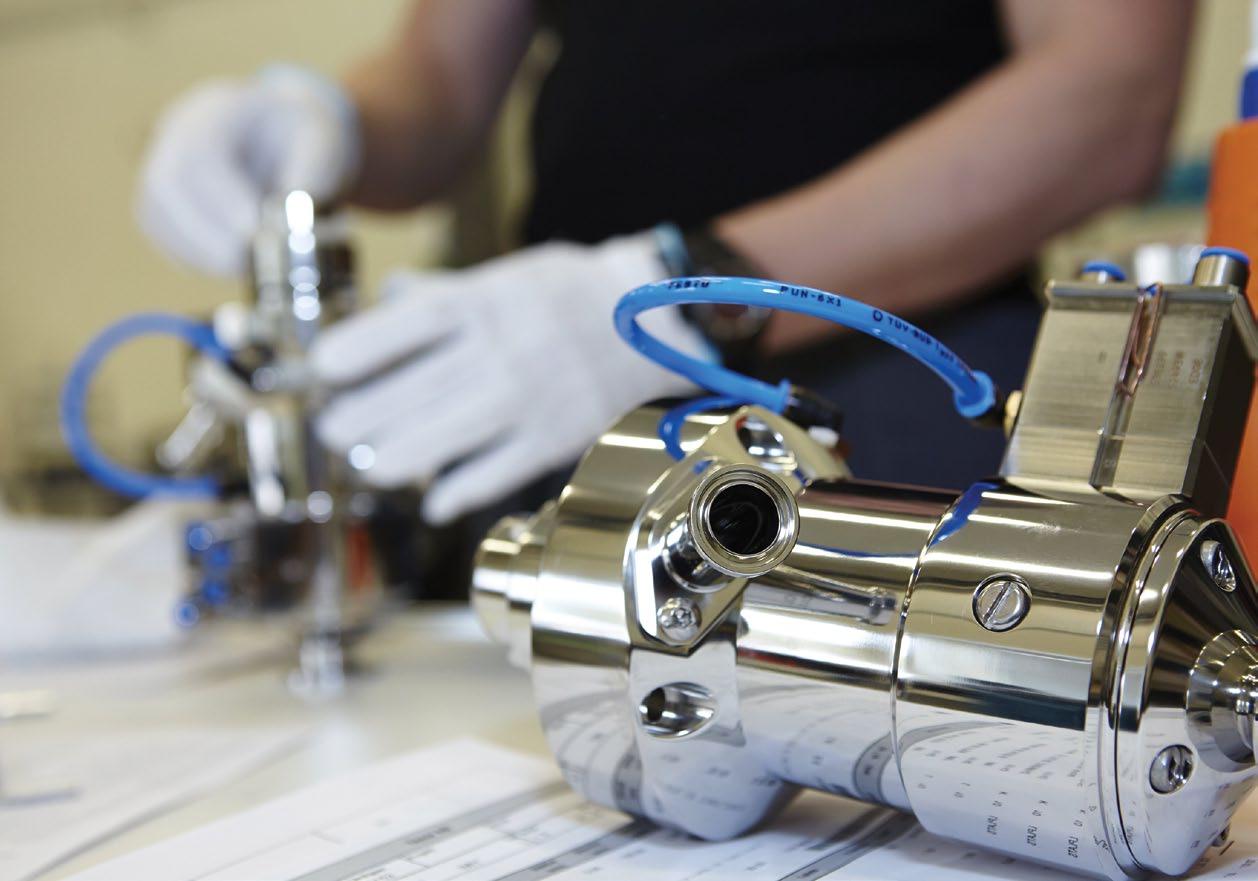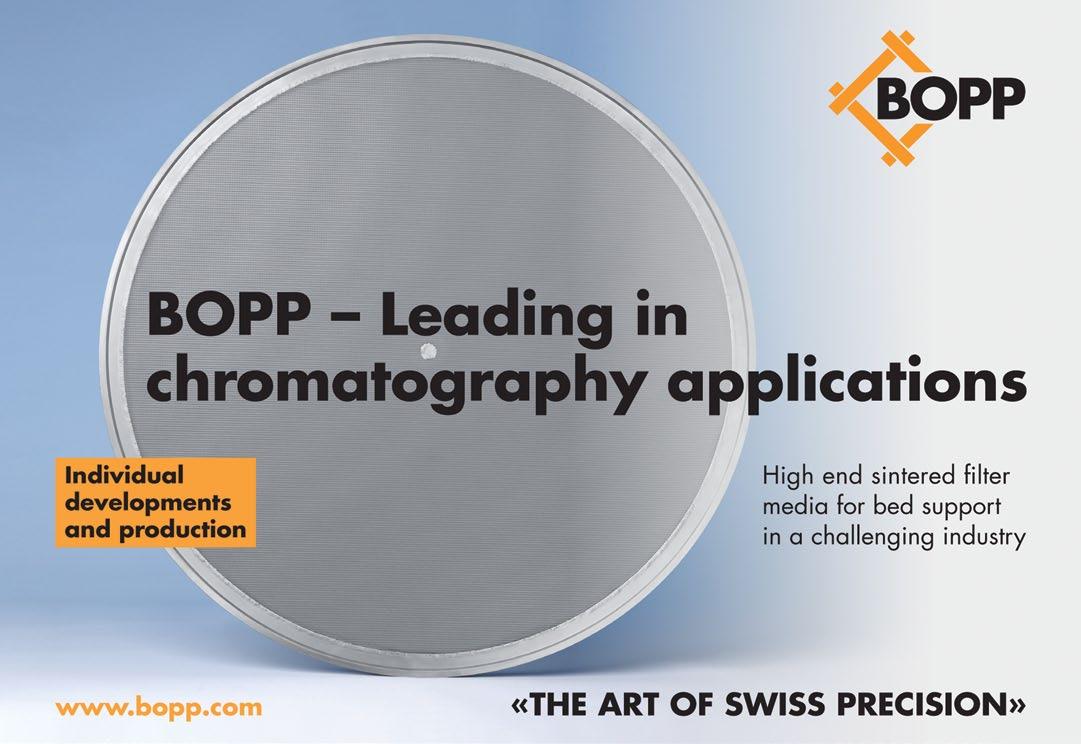
3 minute read
From components to complete systems Texor
Sweden’s Texor is developing its capability to supply complete systems in stainless steel for the Life Sciences sector.

from componentS to complete SyStemS


Texor AB is a specialist in the manufacture of stainless-steel components and systems for the life sciences and food sectors worldwide. It has over 50 years of experience in processes such as machining, grinding, welding, cleaning and electro polishing. Today it works closely with many global biotech and biopharma companies in the production and assembly of stainless steel products such as pressure vessels and chromatography columns (devices used in chromatography for the separation of chemical compounds).
Texor’s history goes back to 1967 when a factory to produce road signs was established in Lycksele, in Sweden’s Lapland, by Alfa Laval. In the 1970s the focus of production changed to manufacturing stainless steel components, mainly to supply other sections of Alfa Laval. In 1988, Texor was acquired from Alfa Laval by its present owner, Carl Bennet, through his wholly owned company, Lifco AB.
Lifco is an industrial and trading conglomerate consisting of 164 companies in 30 different countries with a total of 5,400 employees and an annual turnover of SEK14 billion (€1.3 billion). Its subsidiaries operate in several fields including dental materials and equipment, demolition tools and attachments to cranes and excavators, construction materials, contract manufacturing, environmental technology, forest equipment and vehicle interiors.
expanding competences
In 2007, Texor acquired the Swedish company Zetterströms Rostfria AB, a designer and manufacturer of equipment such as pressure vessels, heat exchangers, skids, and thermo channel products mostly for the pharmaceutical industry. This acquisition added to Texor’s design competence and capacity and represented a step towards an increased focus on deliveries of complete systems to the global life science industries.
Today, Texor has 53 employees and operates a purpose-built and flow-optimised production facility in Lycksele with an area of more than 4,000 square metres. as well as an automatic transportation unit providing the different machine groups with its production orders. Its equipment includes twelve CNC machines and five



manual turning machines. Its biggest CNC can machine materials up to 1,600mm in diameter. Components larger than that are machined at one of its approved suppliers.
The company sources its key materials such as elastomers, plastic and stainless steel components from a world-wide supplier base that meets the highest quality requirements of the biopharma industry.
As a supplier of complete systems, Texor can also handle assemby and complete documentation for customers such as GE Healthcare, Merck Millipore, Tetra Pak and Alfa Laval.
Complete quality control
“The core business of Texor is to operate as sub-contractors for the medical industry, building and supplying machines for drug production,” explains Josef Alenius, who has been CEO of Texor AB since 2014. “This is supplemented by production of parts and machines for the food industry.”
“The very high level of quality that our customers in the pharmaceutical industry require and that we have to achieve is, in fact, our most important competitive advantage. And those requirements concern not just the product but the whole process of delivery, including documentation. Consequently, we have full control and traceability of all raw materials, purchased goods, and components. We conduct regular quality tests, measurements, testing and sampling of our production process in order to identify possible failings and faults at an early stage.”
Texor’s products are supplied to customers worldwide. “We have recorded increased sales in Singapore and India over the last year and are now experiencing growth in the United States,” says Mr. Alenius. “Central Europe is also doing very well in terms of sales, as a result of increased capacity requiring more machines in that region.
“Despite the relatively high cost of our products, they sell well in Asia. You cannot produce medicals on low-quality machines and the quality Texor offers is not so easy to replicate in low cost countries.” n












